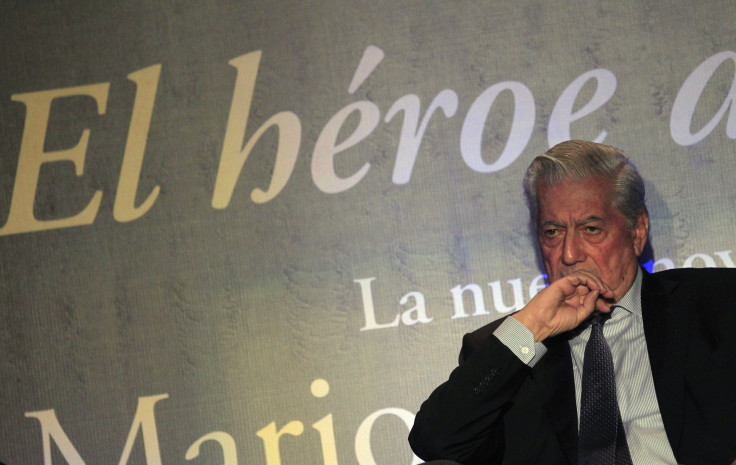
Mario Vargas Llosa, the Nobel Prize-winning novelist and one-time Peruvian presidential candidate, amplified his earlier criticisms of the government of Venezuelan President Nicolás Maduro in an interview with El Nacional on Sunday. “Venezuela cannot be spoken about as a democracy,” he said, “because it is a regimen in which an authoritarian calling is clearly stronger than democratic convictions.” The 78-year-old plans to visit Caracas this week to attend a conference hosted by the free-market think tank the Center for the Dissemination of Economic Knowledge (CEDICE), in part to show support for opposition lawmakers and protestors who continue to demonstrate.
About talks between Maduro’s government and leaders of an opposition party coalition known as the Democratic Unity Roundtable (MUD), Vargas Llosa expressed skepticism, saying he did not think the government would make concessions “necessary for there to be peaceful coexistence.” But he added that he hoped the dialogue would succeed, as he feared that if the government were to believe its influence to be waning, it might use violent measures to secure power. “There are total dictatorships which have absolute control over political, cultural, social, economic life, and there are regimes which are on their way to that system but haven’t gotten there yet,” he said.
“My impression is that Venezuela is no longer a democracy, the regime has gotten tougher and has gone about reducing the space that it permitted to the opposition to demonstrate, especially through the media and the press. Although there still exists an opposition press, it’s living under such difficult conditions and is constantly harassed. The opposition demonstrates with great courage and at much risk. Perhaps that is what may have allowed the process of growing authoritarianism to have halted.”
Since protests spread across Venezuela in mid-February, 41 people have died, 674 have been injured and about 2,285 have been detained -- with 175 still in detention -- in connection with the demonstrations.
© 2025 Latin Times. All rights reserved. Do not reproduce without permission.




